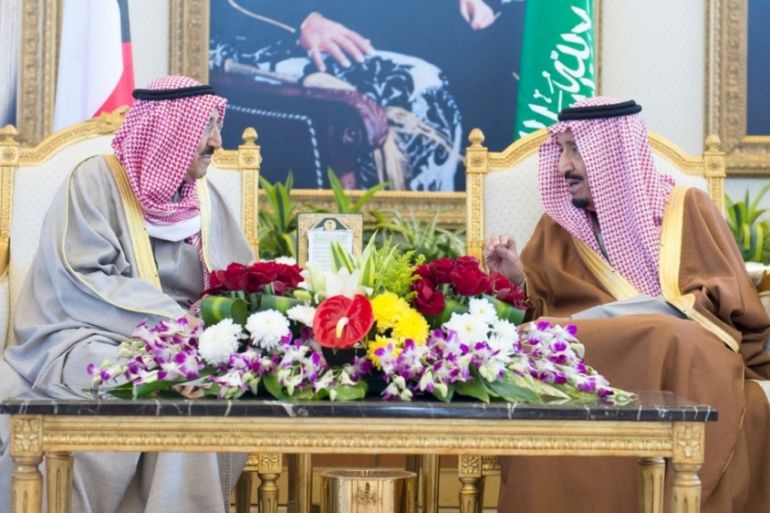Kuwait, Qatar join GCC allies in Lebanon travel warning
The two countries follow Saudi, UAE and Bahraini move after Riyadh halted $4bn aid to Lebanon over Hezbollah.

Kuwait and Qatar have become the latest Arab Gulf countries – following Saudi Arabia, the United Arab Emirates and Bahrain – to call on their citizens to leave Lebanon or avoid travelling there.
The moves by the Gulf Cooperation Council (GCC) member states came days after Riyadh halted $4bn in aid to Lebanese security forces in response to “hostile” positions linked to the Lebanese Shia group Hezbollah.
Doha’s foreign ministry, in a statement on Wednesday on the official Qatar News Agency, called on citizens in Lebanon to “leave for their own safety” and said no Qatari nationals should travel there.
Earlier on Wednesday, the Kuwaiti embassy in Lebanon’s capital Beirut also said that all Kuwaitis should leave “except in extreme circumstances”, and advised those who stay on to exercise caution and avoid unspecified places that are not safe.
The statement, cited by the official KUNA news agency, gave no reason for the move.
READ MORE: Saudi, UAE and Bahrain ban citizens from travelling to Lebanon
On Tuesday, the Saudi foreign ministry issued a statement calling on “all citizens not to travel to Lebanon, for their safety, and asking citizens residing in Lebanon or visiting not to stay unless extremely necessary”.
The statement, carried by the official SPA news agency, urged citizens to contact the Saudi Embassy in Beirut.
Announcing the stopping of aid on Friday, an official said that the kingdom had noticed “hostile Lebanese positions resulting from the stranglehold of Hezbollah on the state”.
The UAE on Tuesday also banned its citizens from travelling to Lebanon and reduced its diplomatic presence in Beirut.
Bahrain also urged citizens against travelling to Lebanon, and called on Bahrainis there already to leave quickly, according to a statement posted to state news.
On Friday, the United Arab Emirates announced “full support” of Saudi’s review of its relations with Lebanon, blaming the country’s “failure to condemn Iran’s aggression” after Saudi Arabia’s embassy was attacked in Tehran in January.
The embassy attack followed the execution of a renowned Shia leader in Saudi Arabia over “terrorism” charges.
READ MORE: Lebanon vows to maintain Saudi ties despite tensions
Lebanon’s main political divide pits a Sunni-led coalition against another led by the Iran-backed Shia Hezbollah movement.
Al Jazeera’s Mohammed Jamjoom, reporting from Beirut, said that the political process in Lebanon, a country with deep sectarian divisions that has gone without a president for two years, is heavily influenced by Iran and Saudi Arabia.
“[Out of] the two main power players here – the two main government blocs – one of them is Sunni-dominated [and the other one] is dominated by Hezbollah, which of course is supported by Iran,” Jamjoom said.
“Lebanon is really at the forefront of the proxy war that’s been going on for quite some time between Saudi Arabia and Iran for regional dominance.”
On Wednesday, Yemen’s government accused Hezbollah of training Houthi forces, fighting alongside them and planning attacks in Saudi Arabia.
Yemen’s government and its Gulf partners have long accused Hezbollah’s ally Iran of backing the Houthis and seeking to transform the group into a replica of the Lebanese militia to use as a proxy against its main regional rival, Saudi Arabia.
Its latest assertion, in a statement carried by official media, is based on “many documents and physical evidence”, found in military positions abandoned by the Houthis, which it said Hezbollah would not be able to deny.
Both Iran and Hezbollah reject accusations that they have provided military aid to the Houthis.